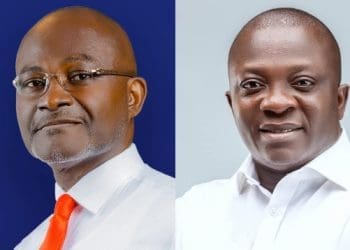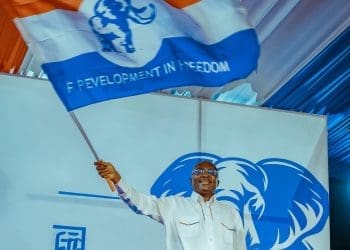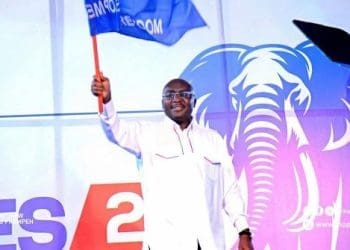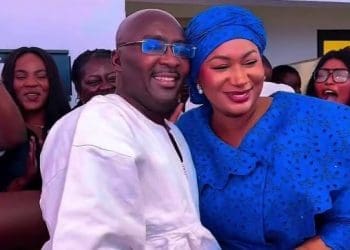In a rare and heated public confrontation, two of Ghana’s most high-profile lawyers—private legal practitioner Thaddeus Sory and former Attorney-General Godfred Yeboah Dame—have clashed in a searing war of words that has spilt beyond the courtroom and ignited widespread public interest.
What began as a critical commentary by Sory on Dame’s legal conduct has escalated into a full-blown personal and professional feud, with each man accusing the other of unethical behaviour, professional jealousy, and political double standards.
The spark: Sory’s ‘crybaby’ taunt
In a sharply worded social media post titled “And Still Crying Incongruously – Part One,” Thaddeus Sory launched a scathing critique of Dame’s public and professional posture, deriding him as a “crybaby” incapable of handling criticism.
Sory accused Dame of conflating legal commentary with political propaganda, of misrepresenting facts in public discourse, and of weaponising state power to stifle opposing voices.
“We do not suffer spoiled children,” Sory wrote, in a post laced with sarcasm, ridicule, and no shortage of legal argument.
The legal practitioner insisted that his critiques of Dame stem from principle, not envy.
“Every time I’ve written about him, it has been in reaction to his refusal to leave my name out of his media outbursts. My name grips him like an epileptic seizure,” Sory stated.
Claims of inconsistency and political gamesmanship
Sory took Dame to task over what he termed a series of contradictions and ethical lapses.
Citing instances in which Dame allegedly objected to his representation of clients such as the Speaker of Parliament, only to later demand sanctions when Sory recused himself, he argued that the former Attorney-General was driven more by animus than principle.
He also questioned Dame’s legal competence, referencing judicial rebukes, including Justice Amadu’s verdict in the Assafuah case, and contending that Dame had bungled basic procedural matters.
In perhaps the most blistering section of his post, Sory ridiculed Dame’s obsession with an old legal victory from 2009, contrasting it with his own recent role in challenging flawed charges in the Jakpa case—an episode that he claims highlights Dame’s weak legal reasoning and the incompetence of a notice of appeal eventually withdrawn by the state.
“If you want to know why the appeal was incompetent, I’ll be happy to explain,” he wrote, suggesting that Dame’s much-vaunted legal prowess was more fiction than fact.
Dame’s retort: ‘You are simply jealous’
Dame, in a lengthy response posted to Facebook, defended his tenure as Attorney-General and dismissed Sory’s criticisms as petty, political, and deeply personal.
Without backing down from the exchange, Dame declared, “A person who cursorily reads your write-up will be permitted to infer that you suffer pangs of jealousy. This, I cannot help.”
He rebutted Sory’s suggestion that he has ever claimed an undefeated legal record.
“I publicly touted losses suffered by my office as a symbol of judicial independence,” Dame noted, citing examples from Supreme Court cases involving the removal of former Auditor-General Daniel Domelevo and restrictions imposed during the COVID-19 pandemic.
Defending his record
The former A-G detailed what he described as an unassailable legal record, not just domestically but internationally.
According to him, Ghana emerged victorious in every international arbitration under his leadership, with awards totalling over US$2.2 billion in Ghana’s favour.
“In all humility, I say that the record of the consistent success I enjoyed in the courts… is there for all to verify,” Dame declared, adding that his legacy includes protecting Ghana’s judiciary from what he calls “false narratives” being pushed by opponents.
He accused Sory and the opposition National Democratic Congress (NDC) of launching coordinated attacks on his person, aimed at discrediting the judiciary and undermining public confidence in state institutions.
A personal history revisited
Dame also referenced a legal clash between himself and Sory dating back to the late 2000s.
“In the only full trial of a case you and I happened to be on opposing sides… you lost miserably,” Dame said, noting that Sory lost both at trial and on appeal.
He suggested that Sory’s current criticisms are fueled by a bruised ego and envy of Dame’s meteoric rise and influence in both legal and political spheres.
“You may be forgiven for thinking that I ‘never lost a case as Attorney-General,” Dame quipped, implying that Sory and others in the opposition have mythologised his record.
Ethics, public conduct, and media prosecutions
Both men accused each other of violating legal ethics.
Sory charged that Dame routinely prosecutes cases in the media, contrary to Rule 38 of the professional conduct guidelines.
He further suggested that Dame’s public commentary on ongoing matters is not just unprofessional but dangerous for the integrity of the legal process.
Dame, however, deflected the charge by appealing to professional regulators. “I leave the authorities that regulate the legal profession to judge,” he said, while expressing hope that his response to Sory would be the last.
Yet, with palpable disdain, Dame could not resist a final jab.
“When Godfred Dame coughs, the whole NDC catches a cold,” he remarked, making clear his belief that Sory’s outbursts are part of a broader political campaign.
A clash of legal titans or a personal feud?
Observers are divided on the nature of the feud. Some view it as a healthy, if intense, exchange between two accomplished legal professionals with different views on law, ethics, and public engagement. Others see it as an unseemly spat that risks damaging the image of the legal profession in Ghana.
“What we are witnessing is not a mere clash of legal philosophies. This has become deeply personal,” one senior lawyer told this paper.
“Unfortunately, it plays into the public’s worst fears—that justice in Ghana can be shaped more by ego and power than by law.”
The political undercurrent
While neither man admits to being driven by political motives, the backdrop of this dispute is undeniably political.
Dame, a known figure in the New Patriotic Party (NPP), continues to be a symbol of the party’s legal credibility, while Sory has, in recent years, become a legal voice for figures aligned with the opposition.
Their arguments—cloaked in legalese—reflect broader partisan anxieties about judicial independence, the rule of law, and the weaponisation of legal processes.
In one of the more telling portions of his post, Dame accused Sory of working to unseat Chief Justice Gertrude Torkornoo in alliance with Tsatsu Tsikata, who represented John Mahama in the 2020 election petition. He framed it as an attempt to politicise the judiciary and delegitimise legal outcomes.
“You assert your duty to ‘represent anyone who retains’ you. Do I not owe the same duty?” Dame asked rhetorically.
What happens next?
With both men refusing to back down, it remains to be seen whether the General Legal Council or the Ghana Bar Association will intervene.
While such public disputes are not unprecedented in Ghana’s legal history, rarely have they been conducted with this level of acrimony or visibility.
For now, the legal community—and the Ghanaian public—can only watch as this extraordinary feud unfolds.
What began as a disagreement over legal ethics has evolved into a full-scale contest for moral and professional supremacy in the eyes of the nation.
A teachable moment?
Despite the bitterness, some believe this confrontation presents an opportunity for the legal profession to confront its own contradictions and renew its commitment to professional conduct.
“In a democracy, disagreement is healthy,” said one law lecturer.
“But the line between principled dissent and personal vendetta must always be carefully observed—especially by lawyers, whose credibility anchors the very idea of justice.”
Whether this is the end of the Sory-Dame duel or merely a pause before another round remains to be seen.
But one thing is certain: the courtroom is no longer the only theatre in which Ghana’s most powerful lawyers now argue.













